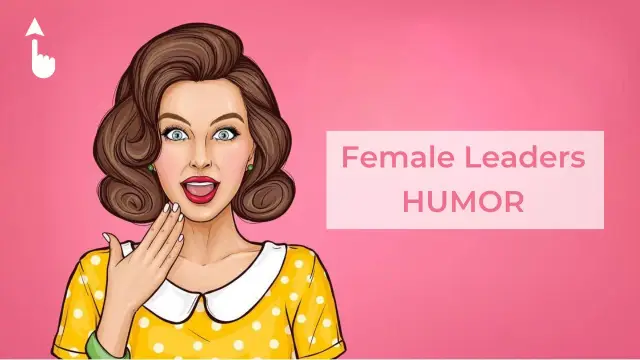Over 10% of Fortune 500 firms have female executives in January 2023. The amount had just surpassed the double digits. Although there has been great progress achieved by women in the workplace toward gender parity, there is still a sizable gender disparity in leadership positions. Despite being equally or more competent than their male counterparts, women remain significantly underrepresented in senior roles.
The advantages of having more women in executive roles are obvious. Companies with diverse leadership teams outperform their competitors financially, according to research.

Consider the 2013 TED presentation by Future Today Institute founder and adjunct assistant professor Amy Webb, who also teaches at Stern Business School. “I like the idea of online dating because it’s based on an algorithm,” said Webb. Will statistics and an algorithm help me find my Prince Charming, I wondered. I so decided to enroll… When asked about entertaining things to do and my dream date, I mentioned money and Japanese fluency. I spoke at length on JavaScript [laughing from the audience].
Our assessors gave Webb good marks for competence, warmth, and leadership, while audience members gave her high marks for humor. Her presentation has received more than 8 million views.
Other situations also show the professional advantages of comedy for women. My INSEAD colleagues Li Huang, Melanie Milovac, and Eric Yuge Lou examined the use of humor in more than 200 start-up pitches as part of an ongoing research study. They discovered that the pitches of female entrepreneurs who scored lower on the humor scale by a third-party evaluator were less likely to prevail and be well received by judges and investors than those of their equally unfunny male counterparts. However, comedy helped to close the gender disparity; pitches that were funnier had the same chance of winning, irrespective of gender.
The two studies discussed above looked at genuine humor expression in situations with actual stakes. In all instances, female presenters who defied the prejudice that “women aren’t funny” by employing humor reaped the benefits of comedy more than male presenters. Women may be seen positively when they disprove gender stereotypes, such as the notion that females are less clever or capable than men. Women presenters who employed comedy well are viewed as intelligent, hardworking, and independent since humor is connected with intellect and competence.
A Sense Of Humor Friendliness, And Expertise

The results of our TED talks study also point to the possibility that comedy might aid female speakers in escaping the twin bind of warmth and competence that they frequently experience. According to research, women who talk assertively are frequently seen as less pleasant, less influential, and more dangerous than their male counterparts. This is especially true if they don’t make an effort to come off as kind and approachable. However, when women do come across as nice and welcoming, their competency is sometimes questioned.
Prior studies have also shown that, regardless of gender, comedy may express both warmth and competence. In our TED study, we discovered that the funnier presenters were viewed as both warm and competent, which suggests that good humor may be the secret to assisting female leaders in exerting more social influence.
Genuinely Hysterical Expression

Genuine jokes that match the teller’s style and individuality, are the funniest. The women who used humor in our studies didn’t use the same jokes as their male counterparts; instead, their comedy was particular to the circumstance, based on their experiences, and distinct and personal.
Because of a prior study that suggests women shouldn’t use humor in job presentations if they want to be considered seriously, our results could come as a surprise. We looked at the impact of genuine humor of various sorts on the person’s popularity and success, whereas past studies addressed whether men and women cracking the same jokes in the workplace were seen as equally competent. We discovered that humor increases women’s perceived warmth and competence in these contexts, two traits that are frequently viewed as mutually incompatible in female leaders, therefore assisting women in overcoming opposition and gaining influence.
A leader’s toolkit for effective communication should include humor. The prejudice that “women aren’t funny” is ubiquitous, but all too frequently it turns into a self-fulfilling prophecy: women are told they’re not funny, which discourages them from utilizing humor in formal contexts. Our research may inspire more women to practice this skill in the art of communication.







